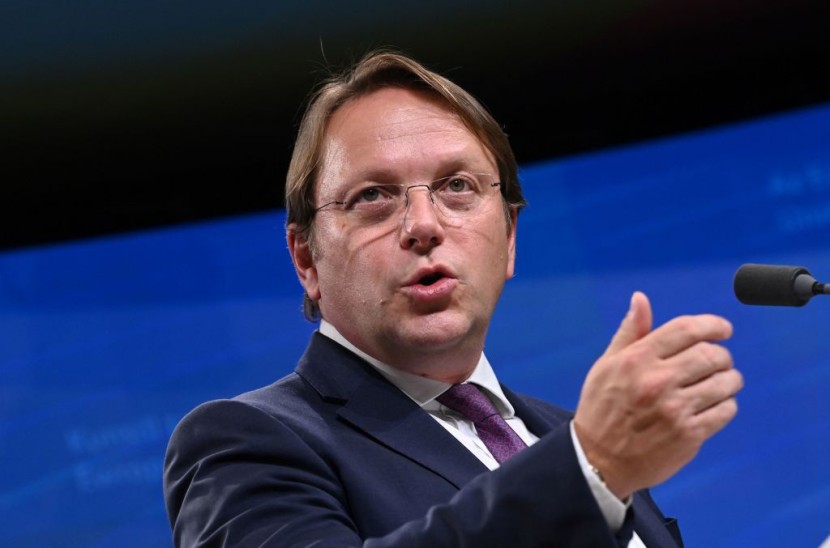
The European Union reversed its decision to suspend aid to the Palestinians in response to Hamas' attack on Israel, following complaints from member states that the bloc's executive had overstepped its bounds.
The confusion started when the EU's top representative for relations with its neighbors, Oliver Varhelyi, stated that the European Commission was reviewing all of its development aid for Palestinians, worth $729 million, as per Reuters.
EU's U-Turn on Palestinian Aid
The European Commission issued a concise statement on Monday evening, contradicting an earlier declaration by EU Commissioner Oliver Varhelyi that all disbursements from a development program for Palestinians would be suspended immediately.
This abrupt reversal concluded a day filled with diplomatic twists at the core of the European Union, raising concerns during a period of heightened geopolitical sensitivity.
The day began with the 27-nation bloc's unequivocal support for Israel, asserting Israel's right to defend itself in the ongoing conflict with Hamas. However, hours later, Varhelyi made an unanticipated announcement regarding the suspension of development aid.
EU officials quickly clarified that no EU funds were given to Hamas, emphasizing that contacts with the organization had been suspended for the past 16 years due to the EU's designation of Hamas as a terrorist organization.
After hours of ambiguity regarding the scope of these measures and whether they would affect aid for those in immediate need, the European Commission clarified that no payments would be suspended at this time. Instead, they initiated an urgent evaluation of the EU's aid to Palestine to ensure that EU funding does not indirectly support terrorist organizations.
The EU claims to have rigorous screening and vetting procedures to prevent funds from falling into the clutches of militants. In light of changing conditions, the European Commission also signaled a review of its support programs for the Palestinian population and the Palestinian Authority.
Josep Borrell, the head of EU foreign policy, criticized Varhelyi's initial announcement, contending that suspending payments would injure the Palestinian people, undermine EU interests in the region, and encourage terrorists, According to AP News.
EU's Two-State Solution Support Amid Aid Controversies
Since the Oslo Peace Accords 1993, the EU has consistently advocated for a two-state solution by international diplomacy. However, some of its aid programs have been accused of having funds diverted for unintended purposes.
EU foreign ministers will meet in Muscat, Oman, via videoconference to debate the situation and determine the necessary actions. They emphasize the significance of addressing the region's peace, tolerance, and coexistence foundations.
The European Commission has distinguished between Hamas, a terrorist organization, and the Palestinian people, who need humanitarian aid. It is anticipated that the assessment will not affect humanitarian assistance.
Since 2000, the EU has provided humanitarian aid through its humanitarian assistance department (ECHO) and the UN Office for the Coordination of Humanitarian Affairs (OCHA) to meet the basic requirements of Palestinians. ECHO has provided 700 million euros in humanitarian assistance to Palestinians in the Gaza Strip and the West Bank.
Germany, the most populous member of the European Union, and Austria have temporarily suspended development aid to Palestinian areas. Germany has pledged 250 million euros for humanitarian programs, focusing on peace and avoiding support for terrorists, while clarifying that it does not provide direct funding to the Palestinian Authority.
Germany wishes to engage in talks with Israel to promote regional stability and security through its development initiatives. Alexander Schallenberg, the foreign minister of Austria, announced a halt on all development aid disbursements totaling approximately 19 million euros.
Austria plans to evaluate all initiatives about the Palestinian territories and consult with international partners regarding the next steps. Meanwhile, international NGOs and the United Nations will continue to provide humanitarian assistance.
The diplomatic storm surrounding the EU's aid decisions highlights the delicate balancing act between humanitarian assistance and geopolitical considerations in the complex conflict in the Middle East, SCMP Reported.








